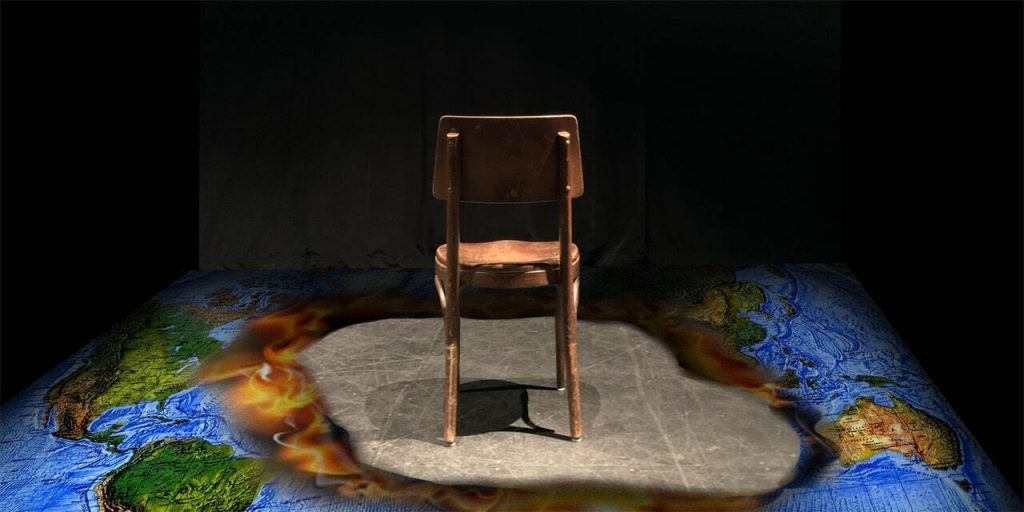On Friday, April 30, the Binghamton University theatre department premiered an adaptation of Steven Dietz’s play “Lonely Planet.” The play, originally performed in 1993, follows the characters Jody and Carl, who radiate love for each other during an epidemic.
Andrew Ajaka, a junior majoring in theatre, directed the production and wrote in an email that the play was adjusted to fit today’s restrictions. Although it was done mostly in the style of a video call, the play did not lose any value in the transition.
“We didn’t change anything in the script, but we did work very specifically to craft our storytelling to live honestly in the ‘Zoom world,’” Ajaka wrote.
“Lonely Planet” revolves around two main characters, Jody and Carl, and has an overarching grimness underlying the whole play. Jody works in a map store, while Carl is Jody’s friend who is never clear about his line of work. The ever-relevant grimness that surrounds Jody and Carl is brought on by an epidemic that shakes the world they live in, much like the recent COVID-19 pandemic.
“Lonely Planet” first premiered in 1993, and made it to New York in 1994. It was recently performed in 2017 as an off-Broadway production by the Keen Company. Ajaka found the play to be very timely and touching while the 2020 pandemic roared on.
“I read this play first before the initial quarantine was put into effect, and then again a half a year later, and found myself bawling by the end of the first act,” Ajaka wrote.
The play never distinguishes what the “epidemic” is, so it’s allowed to be present and relatable no matter the year. The recent pandemic that shook the world as we knew it instantly comes to mind when watching Ajaka’s production, and the video-call style continues the theme nicely. Though the COVID-19 pandemic has affected Ajaka and comes to mind while watching a play about an epidemic, “Lonely Planet” was originally written at the time of the AIDS epidemic. Ajaka wrote that he saw this as an opportunity to educate audiences about the seriousness of the time period.
“My hopes for this piece are to use its liminal setting to create a bridge of empathy between eras and hopefully give people space and drive to begin learning more about how horrifying the reality of this period in American history really was,” Ajaka wrote.
The cast and crew of “Lonely Planet” began rehearsals on April 2 and performed for audiences on April 30 through May 2. Its use of technology to display the play in a relevant way was very refreshing because not every production translates well digitally. The beauty and love shared between its two stars, Jody and Carl, illustrates a human bond through times of hardship in a very unique way. Its comedic tendencies show a more personable approach to dealing with a life-altering event such as an epidemic, and the play paints the characters as people trying in their own ways to navigate difficult situations.
The dysfunctional, confusing times that come from a sweeping epidemic make true understanding and acceptance very hard to reach. With regards to the main mood of the production, Ajaka wrote, “Seeing all of those that you love pass away, with seemingly no explanation, and with no support or even acknowledgment from a negligent administration is horrifying.”
The feeling of loss and confusion follows Jody and Carl throughout the play, forcing audience members to confront the harsh realities of epidemics while showing how important it is to care for one another.
2020 was a year of loss, but one that brought strength and resilience to people all over the world. Support among friends in times when it was not safe to see one another was very crucial. The production of “Lonely Planet” reminded audience members to not only reflect on our recent pandemic but to remember those ignored and lost to previous ones as well. The students transitioned the play from theater to video format seamlessly and maintained all of the emotion and feeling needed to tell the stories of Jody and Carl as they navigated hardship.



